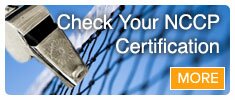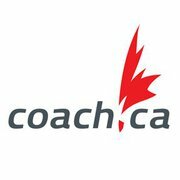NCCP Multi-Sport Courses
Coaches BC offers the following National Coaching Certification Program (NCCP) multi-sport courses, taken in the classroom and many are also offered through the NCCP Home Study program. You can download the NCCP Multi-Sport Modules outline here.
As sports are integrating into the new system, some sports have integrated the multi-sport modules with the sport-specific components (requiring their coaches only take the sport-specific courses). Check with your BC Provincial Sport Organization first to confirm the training you require.
Fundamental Movement Skills
The Fundamental Movement Skills (FMS) workshop focuses on training coaches who are working with athletes who are in the Active Start or Fundamentals stages of long-term athlete development. Based upon the fundamental stages of the Canadian Sport for Life model of long-term athlete development, this workshop explores core NCCP themes such as fair play, safety responsibility, and communication with an innovative skill development process. Participants are given the opportunity to practice strategies to imporve fundamental movement skills such as throwing, hopping, skipping, jumping, kicking, striking, balancing, catching, and agility.
-
Community Leader Workshop
Designed for municipally-based recreation professionals working with young children, daycare professionals and sport camps leaders, and other community-based leaders operating programs for young children.
The community workshop is designed to deliver the 12 units in a one-day workshop format. Each unit focuses on a specific aspect of teaching movement skills or focuses on a specific movement skill and allow participants many opportunities to asses and improve their teaching of fundamental movement skills.
(8 hours classroom time - including breaks)
-
High School Leadership Workshop
Designed for High School Seniors (Grade 11/12) taking high school leadership or senior high school phys-ed classes. The high school leadership workshop consists of 12 units, with each unit being approximately 45 minutes long and allows for easy adaption into a secondary school curriculum. The units give students many opportunities to assess and improve their teaching of fundamental movement skills as well as leadership skills including activity delivery and effective communication.
If you are a teacher with a Physical Eduation degree (or related field), please contact for information about obtaining the FMS High School guide to use in your classroom. The guide comes with lesson plans and a DVD to print your own materials.
(12 x 45minutes classroom time)
-
Coach Professional Development Workshop
Designed for coaches who have already taken NCCP training and have an NCCP number. This workshop is a 4-hour coach professional development module that gives coaches a brief overview of each unit, to supplement their current NCCP knowledge.
(4 hours classroom time - not including breaks)
Competition – Introduction
The Competition ? Introduction context consists of six modules, focused on training coaches who are working with athletes in the learning to train and training to train stages of long-term athlete development. There are no prerequisites to take Competition-Introduction, and you do not have to take the modules in any order.
The six modules are offered stand alone, or grouped into a Part A or Part B workshop (each 2 day workshops, 8 hours each day including breaks). You do not have to take Part A before you take Part B.
Part A Workshop: Includes Introduction, Making Ethical Decisions, Planning a Practice, and Nutrition.
Part B Workshop: Includes Teaching and Learning, Design a Basic Sport Program, and Mental Skills.
-
Making Ethical Decisions Module
Analyze a situation that has moral implications. Determine whether the situation has legal or ethical implications. Identify the ethical issues in the situation. Apply the NCCP ethical decision making framework to respond to an ethical situation adapted to the coaching context, and produce a response that is consistent with the NCCP Code of Ethics.
(3.5 hours classroom time - not including breaks)
 Making Ethical Decisions Online Evaluation: All coaches must complete this evaluation after completing the Make Ethical Decisions module. Once you have received your Coaching Certification (CC) number (approx. 6 weeks after you have completed the course) click here to be directed to the Evaluation located on the Coaching Association of Canada's website.
Making Ethical Decisions Online Evaluation: All coaches must complete this evaluation after completing the Make Ethical Decisions module. Once you have received your Coaching Certification (CC) number (approx. 6 weeks after you have completed the course) click here to be directed to the Evaluation located on the Coaching Association of Canada's website.
-
Planning a Practice Module
Organize activities within a practice plan that is well structured, is adapted to athletes? age, and reflects safety considerations. Distribute activities appropriately in the various parts of the practice. Identify potential risk factors for the sport and the activities. Design an Emergency Action Plan. Identify suitable practice goals. Design activities that have appropriate characteristics for the sport, the age group, and athletes? proficiency level. Design activities to obtain certain training effects on the athletic abilities required in the sport.
(6.5 hours classroom time - not including breaks)
-
Nutrition Module
Assess whether foods and beverages consumed by athletes before, during, and after training or competition are adequate, and offer suggestions on suitable alternatives where necessary. Design strategies to influence parents and athletes to make food choices that are consistent with basic sport nutrition principles.
(1.5 hours classroom time - not including breaks)
-
Design a Basic Sport Program Module
Outline the structure of a sport program using training and competition events. Compare the major orientations of your own program with those proposed by the NCCP in terms of athlete long-term development. Assess the athletic development opportunities offered through the program, and identify possible options to address identified weaknesses. Interpret the information in a sample program designed for a family of sports, and identify training priorities and objectives for certain periods. Establish a link between a program?s training priorities and objectives and the content of daily and weekly practice sessions.
(4 hours classroom time - not including breaks)
-
Teaching and Learning Module
Assess your own beliefs regarding effective teaching. Analyze certain coaching situations to determine whether they promote learning. Create conditions that promote learning and self esteem through (1) appropriate consideration of the affective, cognitive, and motor dimensions of learning; (2) the use of words and methods that relate to the athlete?s preferred learning style; (3) a sound organization; (4) active supervision; (5) and the provision of feedback that is well formulated and offered at the right time and with the right frequency. Use teaching assessment grids to gather objective information on teaching effectiveness. Interpret this data to develop an action plan to enhance teaching effectiveness.
(6.5 hours classroom time - not including breaks)
-
Basic Mental Skills Module
Recognize signs that an athlete may need to improve his or her skills in areas such as goal setting, focus, and anxiety control. Develop an action plan that will enable the athlete to improve in these areas. Run simple guided activities that will enable the athlete to improve these basic mental skills.
(3 hours classroom time - not including breaks)
Competition – Development
The Competition ? Development context consists of six modules, focused on training coaches who are working with athletes who are in the training to train or training to compete stages of long-term athlete development.
-
Leading Drug Free Sport
The Leading Drug-free sport module focuses on the ability of the coach to apply the NCCP Ethical Decision-making Model to sport situations with ethical implications for drug-free sport. This is critical as their athletes at this context are competing at national events, national multi-sport games or beginning to compete internationally where drugtesting is probable. Application of the decision making process reinforces the coaches need to have knowledge of the consequences of using banned substances in sport. Coaches identify educational strategies that they can use to educate athletes about drug-testing protocols at major competitions and take greater responsibility for their sport values and actions.
(3.5 hours classroom time - not including breaks)
-
Managing Conflict
Coaches trained in Managing Conflict will be able to identify common sources of conflict in sport, as well as individuals and groups likely to find themselves in conflict situations. They will gain skills in taking steps to prevent and resolve conflict resulting from misinformation, miscommunication, or misunderstanding. They will also develop skills that empower them to listen and speak for themselves in conflict situations so as to maintain positive relationships with athletes, parents, officials, and other coaches. Modeling such behaviour by a coach is the basis for athletes to enhance emotional development and handle the conflict of national and/or international competition.
(4.5 hours classroom time - not including breaks)
-
Coaching and Leading Effectively
The Coaching and Leading Effectively module focuses on coaches applying intervention techniques that enhance learning with the aim to improve athletes? performance and to promote group and skill development. Coaches will learn how to promote a positive image of sport and model the image to athletes and those supporting their performance. The module provides coaches with a process that they can use to deliver clear messages and explanations when communicating with athletes and those supporting their performance. Coaches also identify opportunities to interact with all athletes and use feedback to improve and correct performance and behaviour.
(8.5 hours classroom time - not including breaks. Usually ran over 1.5 days)
-
Psychology of Performance
The Psychology of Performance module focuses on developing coaches? ability to guide athletes through the building of advanced mental preparation skills and focusing skills. It provides coaches with tools to assist athletes in learning how to manage distractions and conduct visualization so they can prepare themselves technically and tactically for training and competitive conditions. The coaches gain knowledge and ideas on how to work with athletes or teams to identify appropriate outcome, performance, and process goals related to their ability to focus on performance. Coaches also gain debriefing skills that both they and athletes can apply to assist athletes in assessing their performance in training and in competition.
(7 hours classroom time - not including breaks)
-
Developing Athletic Abilities
Coaches trained in the Developing Athletic Abilities module will be able to implement general and sport-specific training protocols and methods to appropriately develop or maintain sport-specific athletic abilities. Coaches focus on applying training principles and variables to training methods that build an athletes? fitness in endurance, strength and speed as a well sport specific conditioning. After completing the module coaches will also be able to select and adapt testing and training protocols and methods to athletes training from 6-9 to 9-12 times per week in single to triple periodization.
(9 hours classroom time - not including breaks. Usually ran over 1.5 days)
-
Prevention and Recovery
The Prevention and Recovery module trains coaches in identifying common injuries in their sport and developing appropriate prevention and recovery strategies so that their athletes can continue to train and compete injury-free. Coaches learn how to support training and recovery with appropriate information and guidance on hydration, nutrition, and sleep as key factors for preventing injury. With this module, coaches will develop the ability to choose skills and drills that help athletes perform skills correctly and ensure athletes perform appropriate warm-ups and cool-downs. Training is provided so coaches can develop functional evaluations for their athletes? return to play and implement recovery and regeneration techniques to maintain or return to optimal performance in training and competition.
(7.5 hours classroom time - not including breaks)
Additional NCCP Coach Training Opportunities
-
Accelerated Teacher Coach Program
-
Resistance Training
A must-have for competitive coaches, this 4-hour dynamic and interactive introductory workshop will teach you how to prevent injuries and increase athlete performance through proven resistance training tools. Become a better coach by augmenting your plan with elements such as:
- Basic lifts
- Stability training
- Core training
-
Aboriginal Coach Manual (ACM) Workshop

The professional development of Aboriginal coaches through NCCP certification has been identified by the ASC as a national priority. In order to educate and promote the value of the NCCP and to establish meaningful participation of Aboriginal peoples in this national program, the ASC embarked on a multi-year process to develop supplemental training material for Aboriginal coaches taking NCCP courses. The result of this process is the Aboriginal Coaching Manual, which responds to the need for a national training curriculum with content that reflects the uniqueness of Aboriginal cultures, values, and lifestyles.
The ACM is a professional training tool for Aboriginal and non-Aboriginal coaches who coach Aboriginal athletes, as they become certified through the NCCP. The material in the ACM has been developed to meet the following objectives:
- provide culturally relevant training courses to Aboriginal coaches and community sport leaders;
- elevate the capacity of Aboriginal and non-Aboriginal coaches to coach Aboriginal athletes;
- improve the quality of the sport experience for Aboriginal athletes;
- improve the coach?s understanding of, and ability to apply, Aboriginal culture to sport and to coaching techniques and tactics;
- allow Aboriginal communities greater accessibility to the NCCP;
- increase the number of NCCP certified Aboriginal coaches;
- make the wisdom of Aboriginal culture available to both Aboriginal and mainstream sport.
The Aboriginal Coaching Manual covers a variety of areas specific to coaching Aboriginal athletes including:
- creating a positive environment
- the physical, mental, cultural and spiritual aspects of Aboriginal coaching
- developing community relationships
- racism in sport
- lifestyle, health and nutrition
Timeframe: 8 hours classroom time - not including breaks. It can be run in 1 day or over two half days or evenings.
-
BC School Sports Coach Manual
 Designed to give participants a better understanding of the School Sport program in BC and the NCCP, this workshop will help you become a better coach!
Designed to give participants a better understanding of the School Sport program in BC and the NCCP, this workshop will help you become a better coach!
This workshop has been designed as a partnership between the Canadian School Sport Federatio (CSSF) and the Coaching Association of Canada (CAC), as it pertains to the development and delivery of the School Sport Module for coaches as part of the National Coaching Certification Program (NCCP). It has been adapted to fit the BC School Sport system.

Together we value school sport coaches who are able to meet the needs of their student-athletes in a safe and ethical manner that exemplifies school sport philosophy.
You will learn how to:
- Solve problems through practical scenarios.
- Promote education through sport.
- Better manage your time as a coach.
- Work with students, coaches and administrators to create a more meaningful experience in school sport.
(4 hours classroom time - not including breaks)
PURPOSE: Establishment of the principles for the partnership between CSSF and CAC as it pertains to the development and delivery of the School Sport Module for coaches as part of the National Coaching Certification Program (NCCP).
TOGETHER WE VALUE : School sport coaches who are able to meet the needs of their student-athletes in a safe and ethical manner that exemplifies school sport philosophy.
-
Empower +
Take your coaching to the next level!
An incredible addition to our NCCP workshop lineup, Empower + is an intense and thought provoking 4-hour workshop that will teach you how to enhance the well-being of the athletes in your care and be a positive role model in the world of sport.
In an interactive and dynamic learning environment, our expert facilitators will guide you through how to enhance athlete welfare by:
- Recognizing the potential for, and presence of maltreatment in sport;
- Learning when and how to intervene when you observe or suspect maltreatment.
You will bring your coaching to new heights by:
- Implementing the NCCP's renowned six-step decision-making model;
- Mastering the art of the difficult conversation; and
- Creating a list of key positive athlete development strategies you can implement in your coaching right away.
- This NCCP workshop will set you up for success in coaching and in life!








 Designed to give participants a better understanding of the School Sport program in BC and the NCCP, this workshop will help you become a better coach!
Designed to give participants a better understanding of the School Sport program in BC and the NCCP, this workshop will help you become a better coach!


